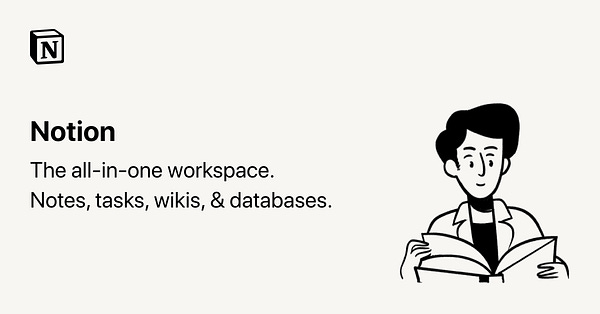Hi y’all, Cokie here.
As we enter Labor Day weekend, I urge you to take some time for yourself. We have had one hell of a year: in life, in fintech, and, for me, in hair products. Do something for you. Finally hit your step count. Cry to either Avatar or Les Mis. Read fiction. Eat too much and casually pop open the top button of your pants while still at brunch. Register to vote. Dismantle the patriarchy. Defund the police. Just take care of yourself, okay?
With that in mind, look out Julie’s newsletter this week. You can and should subscribe here.
FTT+ This Week
“On Sunday, I’m going to be taking a moment to recap what has happened so far in 2020 as we head into the final months of the year. This year feels both long and short all at once with everything we’ve been through personally, doesn’t it? That’s why, taking moments like this to step back and recap can help us refocus for the rest of the year. I have a feeling it’s going to be a busy one!”—Julie
Buckle up, baby: the year is 2002 and we’re all in Ibiza. Special shoutout to Moov CEO Wade Arnold and Nik Milanović for their contributions to the vibe. Playlist is gonna stay collaborative, so make sure to add your bangers of an era. **Reminder to my friends @ my funeral: play Stereo Love as you lower my lifeless corpse into whatever hole you can find by the side of the highway.**
Without further ado,


(Fun fact: Moov CEO Wade Arnold once spent an evening hanging out with Alice DJ & company in Las Vegas.)
The News: by Cokie Hasiotis and Parker Jay-Pachirat
SoftBank bought options tied to billions of dollars worth of individual tech stocks. Tech stocks have had a fantastic year in response to COVID-19 as work, school, and socializing went completely online. Regulatory filings show that SoftBank bought nearly $4B of stock in Amazon, Microsoft, Netflix, and Tesla. If you don’t know, an option is kind of like responding “maybe” to a Paperless Post. You can also just ask your friend using Robinhood to explain it (kidding, sort of). It gives you the right, but not the obligation, to buy at a previous price on or before a specific date.
I was texting Ian about it, and here’s what he said: “Softbank buying up options on tech stocks is so wild. Softbank’s foray into private market tech investing with the Vision Fund has been widely criticized—they’ve been swooping in on late stage tech stocks and pumping up valuations on terrible terms for the founders. Now, some of these companies are either getting acquired or are public (or soon to be public) themselves. We know that a rising tide lifts most boats in investing—amateur retail investors definitely follow companies based on volume traded etc. On the flip side—this is probably what other funds are doing too? Most public market investors I’ve spoken to are still waiting for valuations to drop and swoop in on stuff on the cheap, but Softbank isn’t as valuation sensitive as everyone else. It could pay off which is the wild thing.”
CB Insights recently published their third Annual Fintech 250 report, a list of the top 250 fintech companies in 2020. The companies were selected out of a pool of 16K companies, nominated by application and recommendation. According to CB Insights, eligibility for the report was based on company data, business models, market momentum, and “CB Insights’ proprietary algorithm that measures the overall health and growth potential of private companies”.
Aggregating the 250 companies, $49.2B in funding was raised across 900 deals in the past 5 years. The list includes early-stage startups to established unicorns.
Here are the highlights:
13% (32/250) of the companies are unicorns
In 2020 (YTD), across 120 deals, the 250 companies have raised a total of $10.3B in equity funding
Since 2019, there have been 87 mega-round investments across the 250 companies,, 35 of them in 2020
Most of the companies are located in the US, followed by the UK, and then India
46% of the 2020 fintech 250 are outside of the US
Unsurprisingly, Ribbit Capital is the most active investor across the investors for this year’s top 250 companies
The top deal of 2020 was Grab’s $856M Series I raise in Q1 with participation from Mitisubishi UFJ Financial Group and TIS INTEC Group
Jiko is a tiny 23-person fintech startup, founded in 2016 by former Goldman trader Stephane Lintner. Linter’s idea for Jiko came about when he saw what happened to deposits during the 2008 financial crisis. “Once I saw what happens to deposits, I just thought there had to be another way to give people that money experience without entangling it with the risky lenders,” Lintner said. “I don’t want a society that collapses once in a while.” To cut out the middlemen in banking, Linter wanted to give banking customers access to Treasuries, backed by the U.S government. Jiko is a combination of a checking and savings account. The app is still in beta mode, but is currently being revamped with more features, like a cash-back debit card and tokenized bank account numbers, which will be released before EOY.
There are three ways a fintech can break into the highly-regulated U.S market: apply to become a chartered bank, partner with an existing lender, or acquire a banking institution. Most fintechs, like Chime and Current, chose to partner with FDIC-backed institutions to deliver their products. Jiko stands out as the first fintech to acquire a banking institution with their acquisition of 63-year old Mid Central National Bank.
Brain Brooks, Acting Comptroller of the Currency, remarked: “The move by Jiko represents an important milestone in the maturity and evolution of fintech companies seeking to expand the reach of their products and services. It demonstrates the value and attractiveness of banks and in particular the federal banking system”.
How does Jiko work, what’s different? Jiko doesn’t hold deposits, a significant reason they won the blessing of U.S regulators. Rather than taking deposits to buy Treasuries or perform lending, customer money is swept into Treasury Bills -- which liquidate when a customer uses their debit card, or withdraws cash from an ATM. “Now that you’ve gotten money that’s transparently stored, you know what you’re holding, you’re not funding the North Dakota pipeline or something like that. You’re getting what that money is earning, the Treasury Bill rates, which is the first thing that banks do when they get your money, they buy T-Bills”, said Linter. Jiko plans to use a subscription-based payment method for its services, as they pass on yield from investments and the majority of swipe fees on their upcoming debit card.
Tweets of the Week

Don Richard @DonaldRichard
More interesting: the top 10 states in the US make up 72% of all Cash App users. 1. Cash App will probably dominate consumer neobank market share in the U.S. 2. I think there’s an interesting opportunity to create regional neobanks, targeting specific demos and lifestyles. https://t.co/N0IRmcAukf









